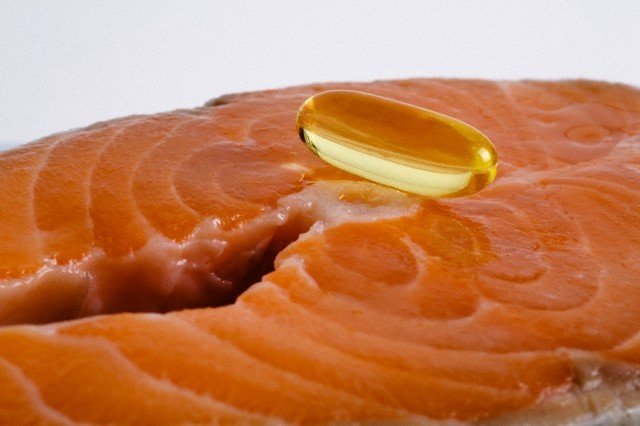While winter is the glorious season of holidays, family get-togethers and parties, it is also the season of flu, colds, arthritis attacks and other physical and physiological winter diseases. While indulging in comfort foods to keep us warm on a chilly winter day, we ignore important nutrients that can severely impact our health. Below you will find 5 powerful nutrients that will help you avoid those winter blues:
Read more ¿Qué más?: 6 Ways lemongrass can help you lose weight
Image via Corbis
Protein

Protein: We are more prone to overeating during the winter months. So adding protein to your diet will prevent you from feeling hungry at random times. Sprucing up your meals with lean protein will keep you full and satisfied, and prevent you from craving carbs such as cookies and pastries. Protein is the most satiating macronutrient, and it is important for weight loss, muscle toning, and healthy hair and nails.
Vitamin D

Vitamin D: The easiest way to get Vitamin D is through sun exposure, but this can be difficult to do during the winter months. Low levels of Vitamin D can cause obesity, celiac disease, kidney and liver disease. It can cause depression and even schizophrenia. Some easy ways to keep your Vitamin D levels up during winter months include eating mushrooms, salmon, oysters, halibut, shrimp and cod. If your diet is not a viable way to get sufficient Vitamin D, then supplements are also available.
Omega 3 fatty acids

Omega 3 fatty acids: Depression is very common in winter, which makes it essential to for your mental health, which could take a hit when the weather is gloomy. Omega 3 fatty acids are perfect for that. They protect you against the symptoms of depression. A research study showed that the participants who took cod liver oil consistently were 30% less likely to experience depression than those who didn't. Low levels of Omega 3 acids can also impair cognition and even cause Alzheimer's disease.
Vitamin B

Vitamin B: Insufficient amount of B Vitamins, mainly Vitamin B12, can cause anxiety and depression. It can negatively impact the functioning of the brain and nervous system. Vitamin B12 is important for the production of red blood cells. The easiest way to obtain this nutrient is through poultry and eggs. That said, it is hard for vegans and vegetarians to get ample amount of this Vitamin, and the same goes for those with low levels of stomach acid. If you can't get Vitamin B 12 through your diet, supplementation will be necessary. Other important B Vitamins include Biotin, Niacin and Thiamin. Keep your Vitamin B levels up to boost your brain functioning during the winter.
Warming foods

Warming foods: During incredibly cold winter mornings, when you crave something to keep you warm you might not have to look further than your kitchen. You see, there are certain foods that have this innate ability to increase your internal temperature. Some of them work by pushing blood to our body's surface, and increasing energy expenditure during the digestive process. Eating spicy foods is the best way to stay warm during winter. Other warming foods include cruciferous vegetables and root vegetables.




